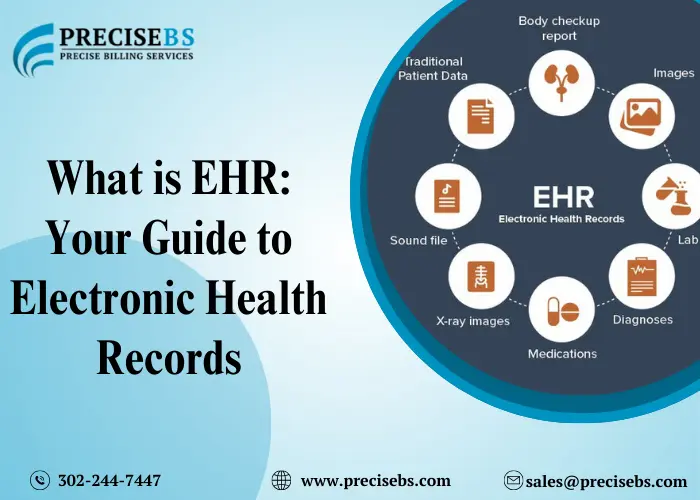In the rapidly evolving landscape of healthcare, electronic health records (EHR) and electronic medical records (EMR) systems play pivotal roles in streamlining patient care, enhancing efficiency, and improving outcomes. These electronic versions of patients’ medical histories are replacing traditional paper records, offering numerous benefits to both healthcare providers and patients alike.
The healthcare industry has embraced a new era of record-keeping with Electronic Health Records (EHRs). But what exactly are EHRs, and how do they impact you, the patient? Understanding these systems is essential for healthcare professionals and patients alike. Let’s delve into the world of EHR and EMR systems to uncover their significance and functionalities.
What is EHR?
EHR stands for Electronic Health Record. It is a digital version of a patient’s paper chart, containing all the necessary medical information about an individual’s healthcare history. Electronic Health Records (EHR) revolutionize the way healthcare providers manage patient information. EHRs offer a digital repository of a patient’s medical history, treatment plans, diagnoses, medications, allergies, laboratory test results, and more. Unlike traditional paper records, EHRs are stored electronically and can be accessed securely by authorized healthcare providers. These comprehensive records provide a holistic view of a patient’s health, enabling seamless communication and coordination among healthcare providers.
EHR Meaning
The term “EHR” encompasses the systematic collection of electronic health information about individual patients or populations. It includes a wide range of data, such as medical history, diagnoses, medications, treatment plans, immunization dates, allergies, radiology images, and laboratory test results.
EHR Definition
An EHR system is a digital platform designed to store, manage, and retrieve patient health information. It enables healthcare professionals to create, update, and share electronic records seamlessly across different healthcare settings.
Understanding EHR (Electronic Health Record) Systems:
An EHR system comprises software applications, hardware components, and network infrastructure that facilitate the electronic capture, storage, and exchange of patient information within a healthcare organization.
Advantages of EHR Systems
EHR systems offer numerous benefits, including:
- Improved Patient Care: EHRs facilitate better-informed clinical decisions by providing quick access to accurate and up-to-date patient information.
- Enhanced Efficiency: Electronic records streamline administrative tasks, such as appointment scheduling, billing, and insurance claims processing, reducing paperwork and saving time.
- Interoperability: EHR systems enable seamless data sharing among healthcare providers, promoting collaboration and continuity of care.
- Patient Engagement: Patients can access their health records online, empowering them to actively participate in their healthcare journey and make informed decisions.
Decoding the Benefits of EHRs
So, why the switch from paper to digital? EHRs offer a multitude of advantages for both patients and healthcare providers:
| Improved Accuracy: | Say goodbye to illegible handwriting! EHRs minimize errors by offering standardized formats and automated data entry. |
| Enhanced Communication: | With EHRs, authorized providers can securely access your medical history, fostering better communication and collaboration between doctors and specialists involved in your care. |
| Streamlined Care: | Imagine refilling prescriptions or scheduling appointments electronically. EHRs can streamline administrative tasks, saving you and your providers valuable time. |
| Reduced Costs: | Paper charts require physical storage and maintenance. EHRs offer a more cost-effective way to manage medical records. |
| Empowered Patients: | Secure EHR portals allow you to access parts of your medical record, promoting better self-management of your health. |
Unveiling the Mystery: EHR vs. EMR Explained
While both EHR and EMR systems involve the digitalization of patient records, the key distinction lies in their scope and interoperability. EHR systems are more comprehensive, allowing for the exchange of health information across multiple healthcare providers and settings, thus promoting continuity of care and collaboration among different stakeholders.
The world of healthcare throws around a lot of acronyms, and EHR and EMR are two that often get confused. While they both refer to digital versions of medical records, there’s a key difference between them.
EMR (Electronic Medical Record)
Think of an EMR as a digital version of a traditional paper chart. It contains information generated by a single healthcare provider, like a doctor’s office or clinic. This could include things like:
- Visit summaries
- Medications prescribed
- Lab results
The downside of an EMR is that the information tends to stay siloed. If you see a specialist or go to a different hospital, they likely won’t have access to your EMR unless you provide them with copies of your records.
EHR (Electronic Health Record)
An EHR takes things a step further. It’s a more comprehensive record that can be shared with authorized providers across different healthcare organizations. This broader view might include:
- All the info in an EMR
- Immunization history
- Allergies
- Discharge summaries from hospital stays
The ability to share information securely is a major benefit of EHRs. It allows doctors to get a more complete picture of your health history, which can lead to better diagnoses and treatment plans.
| Electronic Health Record (EHR) | Electronic Medical Record (EMR) |
|---|---|
| This refers to a digital version of a traditional paper chart containing your medical history within a specific healthcare provider’s office. Think of it as a digital file cabinet for your doctor’s office. | This is a broader concept. An EHR encompasses all your medical information, not just from one provider’s office. It can include data from hospitals, specialists, labs, and even patient-generated information from wearable devices. EHRs aim to provide a more comprehensive picture of your overall health. |
Essentially, EMRs are like individual chapters in your health story, while EHRs strive to be the complete book.


[…] patient billing, ensuring accuracy and compliance with healthcare regulations. By integrating with electronic health records (EHR) and practice management software, RCM software enables seamless data flow and improved […]